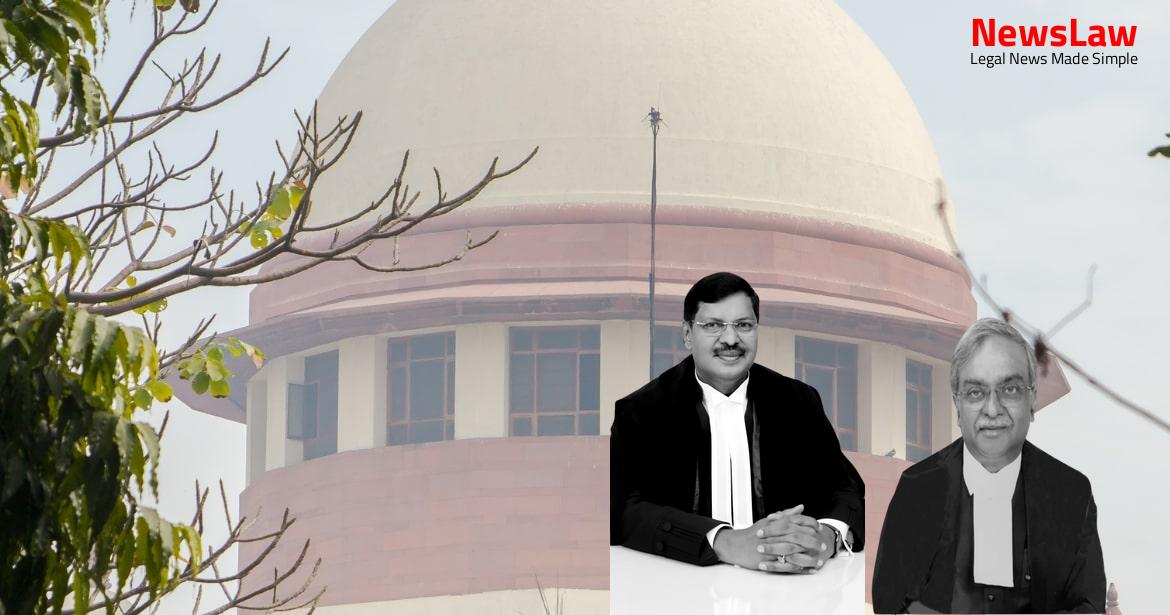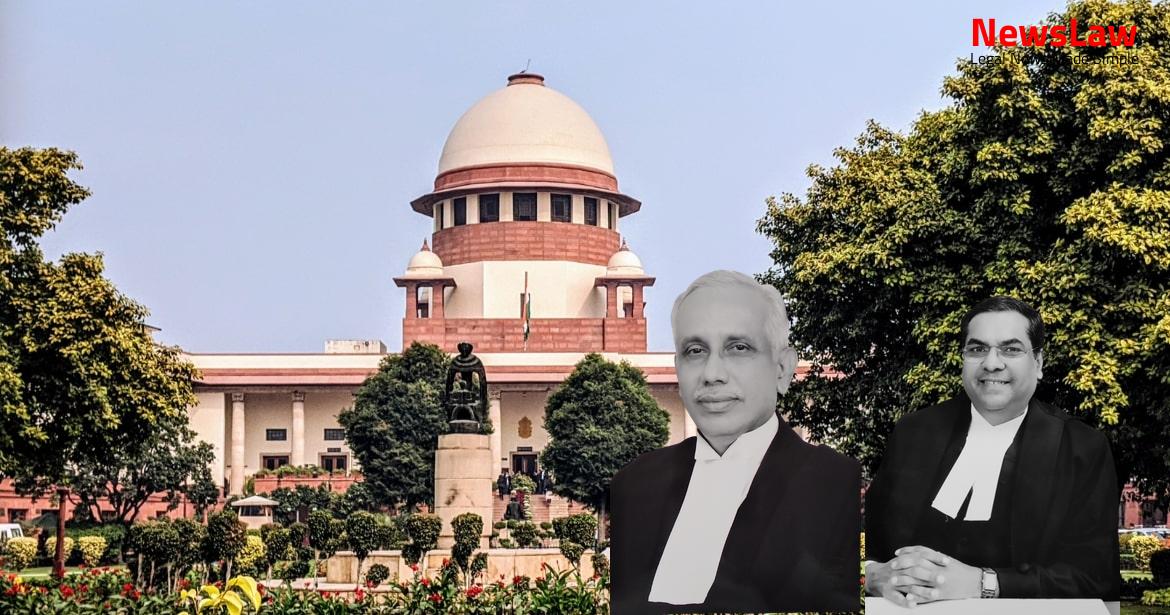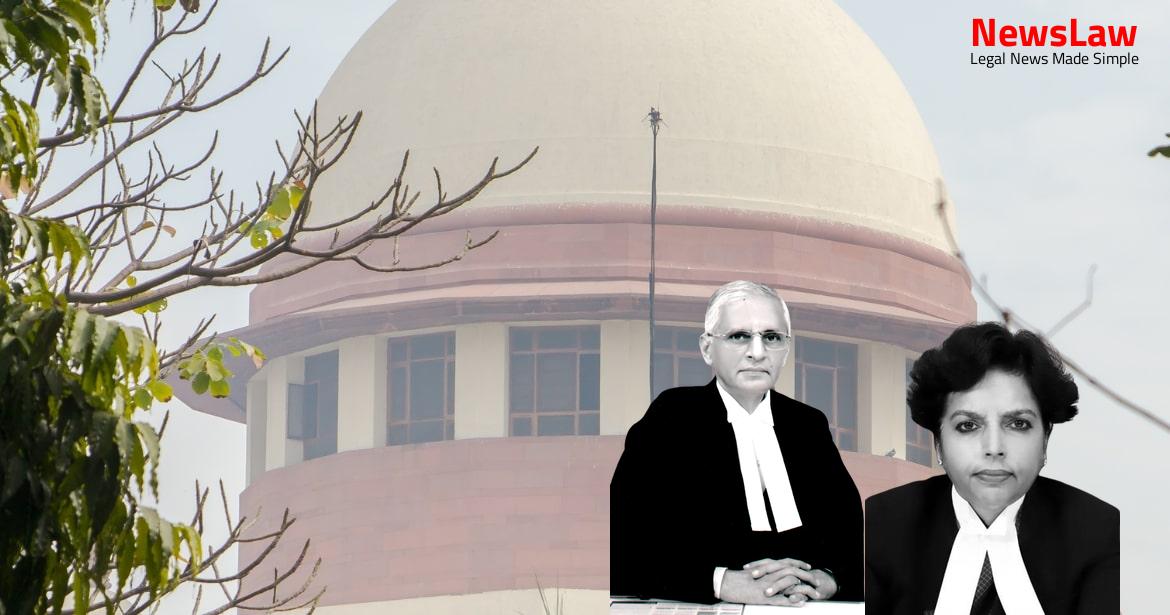Exploring a significant legal case where the Supreme Court of India addressed the power of trial courts to summon additional accused. This case involves a detailed analysis of Section 319 of the Code of Criminal Procedure, with a focus on ensuring a fair trial and completing criminal prosecutions. The case raises crucial questions regarding the summoning of accused post-conviction, shedding light on the intricacies of the Indian legal system.
Facts
- The prosecution filed applications under Section 311 and Section 319 of CrPC for recalling witnesses and summoning additional accused.
- PW-4 and PW-5 were recalled based on the prosecution’s application under Section 311 of CrPC.
- Five additional accused, including the present appellants, were summoned based on the application under Section 319 of CrPC.
- The Sessions Court initially convicted nine accused in Sessions Case No 289 of 2015.
- The accused-appellants approached the court through Special Leave Petitions against the impugned judgment of the High Court.
- The witnesses named the accused-appellants upon being recalled during the trial.
- Accused-appellants filed separate Criminal Revision Petitions in the High Court challenging the summoning by the Sessions Court.
- High Court dismissed the Criminal Revision Petitions and upheld the summoning order.
- Sessions Court, on the same day, allowed the prosecution’s application and summoned the accused-appellants under Section 319 of CrPC.
Also Read: Anticipatory Bail Application in Different Cases: Landmark Judgment by the Supreme Court of India
Issue
- The substantial questions of law that arise for further consideration are outlined.
- The first question pertains to the power of the trial court under Section 319 of CrPC to summon additional accused after the judgment of conviction of co-accused has been rendered.
- The second question concerns the trial court’s authority under Section 319 of CrPC to summon additional accused when the trial of absconding accused, whose presence is subsequently secured, is ongoing separately from the main trial.
- The need for guidelines to be followed by the competent court when exercising power under Section 319 of CrPC is highlighted.
- The matters are to be placed before the Chief Justice of India for the constitution of a Bench to consider these questions.
Also Read: Supreme Court of India Dismisses Writ Petition on Arms Export to Israel
Arguments
- Mr. P. S. Patwalia, senior counsel for the accused-appellant, argued that the power under Section 319(1) CrPC can be exercised before the pronouncement of judgment based on Hardeep Singh v. State of Punjab.
- He emphasized that Section 319(4) CrPC must be read along with Section 319(1) requiring the new person to be tried together with the existing accused.
- The State contended that Section 465, CrPC was introduced to prevent technicalities and ensure a balanced mechanism in the Criminal Justice System.
- Mr. V. Giri supported Mr. Patwalia’s argument, stating that the application under Section 319 CrPC was heard during the trial, with the summoning order passed simultaneously with the final judgment of other accused.
- The separation of the Section 319 application from the trial was done by the High Court for expeditious completion of proceedings.
- Mr. Harin P. Raval for the respondent State argued that even if the summoning order was passed after the conviction, the relevant factor was the application of mind within the prescribed time limit under Section 319 CrPC.
- He contended that the violation observed in the present case is substantive as per the Hardeep Singh case, emphasizing that the court becomes functus officio after conclusion of the trial.
- The inclusion of evidence post-conviction was deemed a breach of fair trial principles according to Raval, who found the summoning order passed after conviction contrary to the principles laid down in the said case.
- The uniqueness of the question of law in this case was highlighted, especially concerning the validity of summoning orders post-judgment.
- The respondent State argued that procedural laws should be liberally interpreted to render justice.
- Emphasized that Section 319, Cr.P.C. should be interpreted pragmatically considering the entire mandate of the Code.
- Argued that the trial cannot be considered fully concluded if the bifurcated trial involving absconding accused is still pending.
- Supported the arguments made by Senior Counsel Mr. Harin P. Raval.
- Submitted that the observations in the Hardeep Singh Case should not be diluted.
Also Read: National Task Force for Healthcare Safety: Ensuring Dignity and Protection for Medical Professionals
Analysis
- The Court analyzed the ambit of the term ‘trial’ in the context of exercising power under Section 319 of CrPC.
- The power under Section 319(1) of CrPC can be exercised after the charge-sheet is filed and before the pronouncement of judgment.
- Section 319 of CrPC reflects two main objectives: ensuring guilt of all accused and completing criminal prosecutions.
- The exercise of power under Section 319(1) of CrPC is not dependent on the likelihood of conviction.
- Proceedings with the summoned individual under Section 319(1) of CrPC may be de-novo or joint trial.
- The judge’s application of mind and the final order in exercising power under Section 319(1) of CrPC are time-bound.
- Differentiating the present case from the Shashikant Singh Case, the interpretation of the law was based on unique facts.
- Section 319 of CrPC is seen as an enabling provision in situations where the investigating agency failed to name an accused.
- The gap between the original and reformulated Question no. 1 in the reference Order of the Hardeep Singh Case is crucial in this context.
- Caution is advised for trial courts in summoning accused under Section 319 of CrPC to ensure fair trial and avoid complexities.
- Timely disposal of matters is emphasized to serve the interest of justice.
- The Section allows a ‘Court’ to summon additional accused based on evidence during an inquiry or trial.
- The additional accused must have committed an offence that can be tried together with the named accused.
- The summoning of additional accused is permissible if it appears from the evidence that they have committed an offence.
- Section 319 of the Code of Criminal Procedure allows for the addition of accused during the course of trial.
- The word ‘evidence’ in Section 319(1) may include evidence collected during investigation.
- The satisfaction required to invoke the power under Section 319 involves a comprehensive assessment.
- The mandate of trying newly added accused together with the main accused is seen as directory rather than mandatory.
- Previous cases like Shashikant Singh Case have provided guidance on the exercise of power under Section 319.
Case Title: SUKHPAL SINGH KHAIRA Vs. THE STATE OF PUNJAB
Case Number: Crl.A. No.-000885-000885 / 2019



